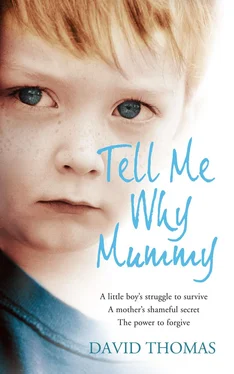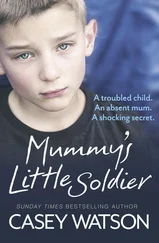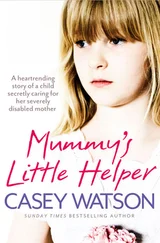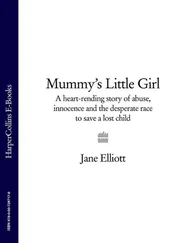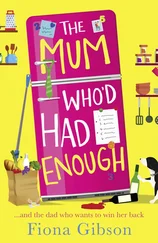Our house is quite isolated though. It stands in a fork in a country lane and is one of four terraced charcoal-grey-stone cottages, smothered at each end with dark-green ivy, surrounded by trees and perched above a steep ravine through which a sparkling river runs over mossy rocks and boulders. Although from the front of the building the cottages seem squat, with small, poky rooms where the light never spreads, the back of the building slopes steeply down towards the ravine. So there are only two floors on the front of the house, but two more floors at the back. They tower over the river, and even in summer the whole building is gloomy and mysterious like a gothic mansion.
My earliest memories are of these strange contrasts – the warm, cosy, intimate times when I play with my mother; the cold, isolated, dark, forbidding times when things are completely different – in my family life as well as in the places surrounding it.
Years ago, there was a cotton mill a hundred yards along the ravine and you can still see signs of it along the brick banks of the river. A hundred yards from my home, between where the mill used to be and the house, is an old scrap-metal yard which may very well be the most beautiful scrapyard in the world, as it virtually hangs over the river.
The scrapyard is a second home to me. I love looking up at all this wonderful metal piled up as far as I can see. It’s dirty and greasy, a perfect place for a small boy. I play hide and seek with the owner’s young son Jeff, in and around the stacks of rubber tyres, dustbins, stripped doors, racks of trellises, lead piping, stained and damaged cast-iron baths and wash basins, wrecked car parts, and all the other layers of junk that have settled one on top of the other like geological strata in this metal wonderland. Jeff’s father is gruff but kindly, a good-humoured, plain-speaking Yorkshireman who sometimes smiles but never says much to me.
When I’m not playing with Jeff, I play by myself or sometimes with George, a lad of my age who lives a few fields away, and whose mother gets on well with mine. My earliest memories are of forever playing outside. Although as a young child I am not very adventurous or physically courageous, I am naturally inquisitive and am always looking for birds and animals in the fields and fish in the river.
One day, playing in the scrapyard, I find a bird’s nest, embedded deep within some rusty metal boulders. Even as a four-year-old I am amazed at how tough, tenacious and adaptable life is; how such a vulnerable thing as a bird’s nest with its firm outer ring and its gentle cosy lining can find a home in this alien place; how life can grow and thrive here, in the shadows.
The next time I go to see the nest, the chicks have hatched. I stare at the broken shells in amazement. Only yesterday they were tiny fragile pear-shaped eggs with beautiful, delicate patterns. When I return later in the day all the shells have gone.
I ask the scrapyard owner what’s happened to them.
‘Mother’s eaten ’em, lad, or chucked ’em away,’ he says. ‘She likes to keeps things clean and tidy.’
‘I liked the eggs,’ I say.
‘Aye lad, but as they always say, you can’t make an omelette without breaking eggs.’
I think about this Omlet and wonder how many eggs you must break to make it. Are all the chicks baby Omlets and what happens to the mother Omlet? Do they all stay in the nest together or do they fly away and never see each other again?
I go down to the nest every day after that and look at the chicks.
One day when I go to the nest, I find it empty. I wonder what’s happened to the chicks and where they’ve gone. I think they must have all turned into Omlets and flown away.
Dad has a lock-up garage near the scrapyard where he stores something special. One day he shows me what he keeps inside: it’s a red Volvo P1800. I’m very excited as this is the car used by Simon Templar in the TV show The Saint . The Volvo is impossibly beautiful with swooping curves and looks very exotic – as good as any other car on the road. We also have a Rover called Bluebell which Dad keeps on a patch of grass on the side of the house. It’s a gorgeous car – the kind Jim Callaghan drives and Mum says he’s a very important man and one day he might even be Prime Minister.
My father, Keith, is a big man, a foot taller than my mother, with a large face, horn-rimmed glasses, short black hair combed back from his forehead and a thick black beard. He doesn’t have a moustache though, so when I’m older I think his beard looks like one of those joke beards you stick on your chin to make you look like a monkey or a rabbi.
He likes making jokes, my Dad, but in other ways he can be a bit of a cold fish – he’s not affectionate with me and there’s never any rough and tumble with him. He is genial and patient towards me but he’s also strict – firm but fair. Unlike my mother, he isn’t sociable or gregarious. He doesn’t smile a whole lot.
Dad works as a draughtsman but his true obsession is his motorbikes and engines. We have lots of space in the house and he even has a garage underneath the house just for his motorbikes, which he rides up and down the lane. He may not have built this garage himself but he’s changed it to make it the way he wants it to be. Down in the garage, I peer up at him in wonder as he takes apart the engine. He lets me watch and answers my questions.
‘What you doing, Dad?’
‘I’m just changing the oil in the gearbox.’
‘Why, Dad?’
‘To keep the gears all working nicely, son.’
‘How d’you do it?’
‘Well, you have to remove the drain plug from the gearbox, drain the oil, and then remove the gearbox fill plug and fill it with new oil. Then you wipe away any oil you’ve spilt so it’s all clean and replace the chassis protector . . . ’
And on he goes, carefully explaining what he’s doing. I don’t really understand what he’s saying though. After changing the oil, he’ll start on the nuts and bolts.
‘Can I help you, Dad?’
‘Yes, you can hand me that spanner, lad.’
‘What’s that for?’
‘Just to tighten the nuts around these bolts . . . look. But you mustn’t screw them too tight. Otherwise you’ll never be able to loosen them if you need to. Gently does it.’
I watch as he tightens the nuts, totally lost in what he’s doing. After that, he polishes all the chrome until it shines like the sun gleaming over the river.
The house we live in is one of a row of four. As the other three come up for sale Dad buys them all. The odd thing is, though, that I know some of the other houses are, or used to be, owned by my Mum’s family. Is my Dad getting richer while my Mum’s family are getting poorer? These things are mysteries to me. I may never know the truth.
Our house above the river is our little patch of heaven. We have no direct neighbours, but there’s a farmer up the road who stops and talks as he passes our house many times a day. Although we eventually own all four houses, the really strange thing is that we only live in one, which always feels dark inside. That’s because it’s overshadowed by trees and also because the rooms are small and the windows let in very little light.
The house is bare and simply furnished; the kitchen has very basic chipboard cupboards and lino on the floor. I’ve seen lino in other people’s kitchens so we’re not that different from other people, at least as far as that goes. But I think about the kitchen lino for another, much stranger reason.
* * *
My parents met through the Methodist Church. They were in the choir and, as my mother is always keen to point out, both were as innocent as young lambs when they married in 1966. But as far as I know, from the brief times I spend in George’s house with his family and then when I look at my Mum and Dad and me, I can already see that we don’t seem to work like a normal family – we never do things together. I spend time just with Dad and his cars and bikes, or I spend time just with Mum, who can be great fun when she wants to be.
Читать дальше
